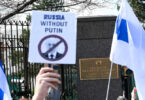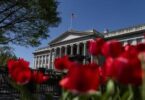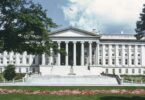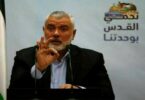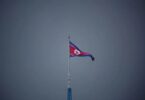Baku (AFP): Azerbaijan on Tuesday detained two journalists who investigate political corruption, their lawyers said, in the latest case targeting media in the tightly-controlled Central Asian nation.
Signs of dissent are usually met with a tough government response in Azerbaijan, an energy-rich Caspian nation long ruled by the Aliyev dynasty.
“Police detained on Tuesday Sevinj Vagifgyzy, editor-in chief of Abzas Media, upon her return to Baku from Europe, and searched her home,” lawyer Elchin Sadygov told AFP.
On Monday, the media outlet’s director Ulvi Hasanli, was “detained and charged with smuggling foreign currency,” said his lawyer Zibeyda Sadygova.
“Hasanly has pleaded not guilty and denounced the charges as unfounded,” Sadygova said, adding that her client “risks” up to 12 years in prison.
On Tuesday, the two lawyers told journalists that a Baku court had ordered Vagifgyzy and Hasanli sent to a four-month pre-trial detention.
Abzas Media reported that Hasanli was “subjected to inhumane treatment” in custody.
Amnesty International, the rights group, said in a statement it was “concerned” by reports Hasanli was beaten or mistreated in detention.
His arrest “fits into a pattern of critics being arrested by the authorities to stifle their dissent,” Natalia Nozadze, the rights watchdog’s South Caucasus researcher, said.
She said Hasanly “has bravely exposed allegations of high-level corruption in Azerbaijan and covered critical issues of public interest” and that he has in the past “faced repeated harassment from the government.”
In July, Azerbaijan arrested high-profile political economist and civil activist Gubad Ibadoghlu on charges of financial crimes which he denounced as false.
He said his prosecution was retaliation for exposing high-level corruption.
Amnesty International has said Ibadoghlu has major health issues, and his life is in danger “due to unsafe prison conditions and denial of adequate healthcare.”
The government of President Ilham Aliyev, who has ruled the country since 2003 after succeeding to his father Heydar, has long faced international criticism over the country’s poor democratic record.


